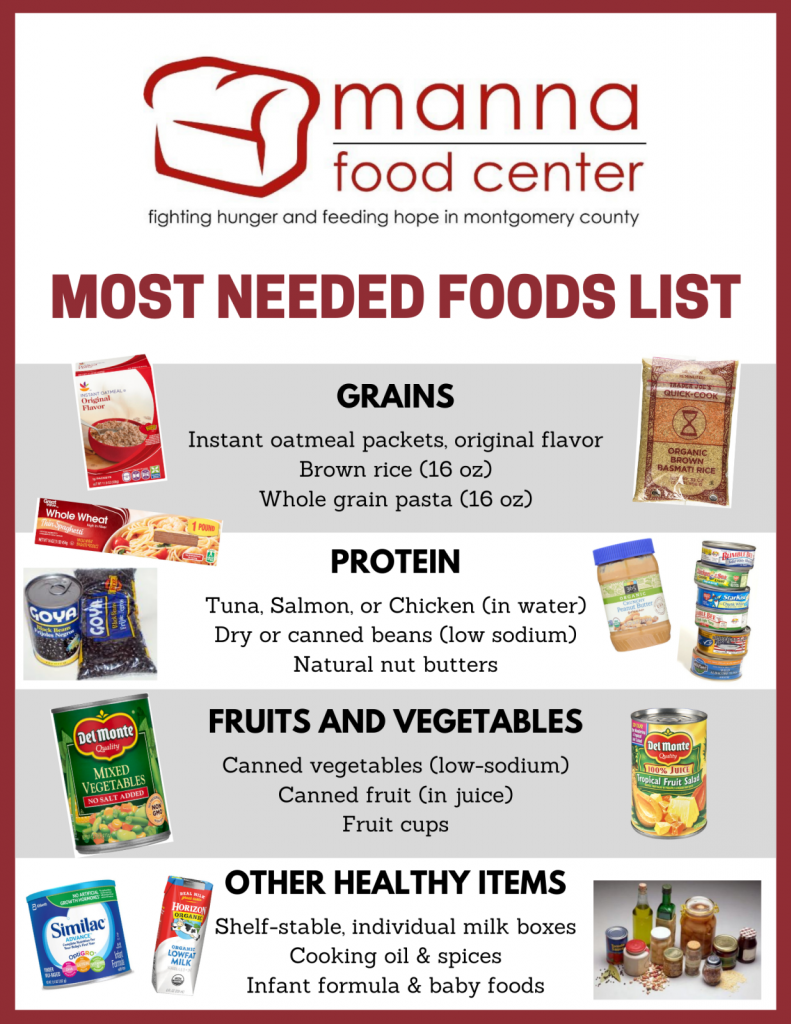Most Needed Foods List
In the United States, processed food products with added sugar and salt are often more affordable than nutrient-rich foods like fruits, vegetables, and whole grains. For this reason those of us with limited material resources find it easier to fill up on calorie-dense food that does not contain the varied nutrients our bodies need.
The Most Needed Foods List suggestions listed here will help guide you in providing the most healthful donation for our neighbors who need it most.
Foods Unsuitable for Donation
At Manna, we care greatly about the health of our community and respectfully ask that you do NOT donate soda, cakes, cookies, or candy, as we will not provide these goods to our participants.
Kindly note that we CANNOT distribute the following:
- Alcohol
- Foods canned/pickled/preserved at home.
- Foods in sharply dented, swollen, bulging, leaking or rusted cans.
- Bulk foods that have been repackaged.
- Foods in containers without labels.
- Foods in opened or torn containers exposing the food to potential contamination.
- Foods with an “off” odor or foods that show any other signs of spoilage (browning, discolored, slimy layer).
- “Distressed” foods = foods that have been exposed to fire, flooding, excessive heat, smoke, radiation, other environmental contamination.
- Foods that have been recalled for potential health risks.
Important Information on Shelf Life
EXPIRED? Food Waste in America from Racing Horse Productions on Vimeo.
As you’ll learn, most food is perfectly good to eat weeks, months, and even years past the date on package. Knowing this, Manna does share food past date. Here’s a guide to how long past date we’ll distribute commonly donated items:
- Baking Mixes – 8 months
- Dry Beans and Nuts – 1 year
- Cereal and Crackers – 1 to 2 years
- Uncooked Rice/Pasta – 1 to 2 years
- Canned High-Acid Foods (peaches, tomatoes, juice, etc.) – 12 to 18 months
- Canned Low-Acid Foods (meat and vegetables) – 2 to 3 years
- Food in Glass/Plastic Jars – 2 to 3 years


